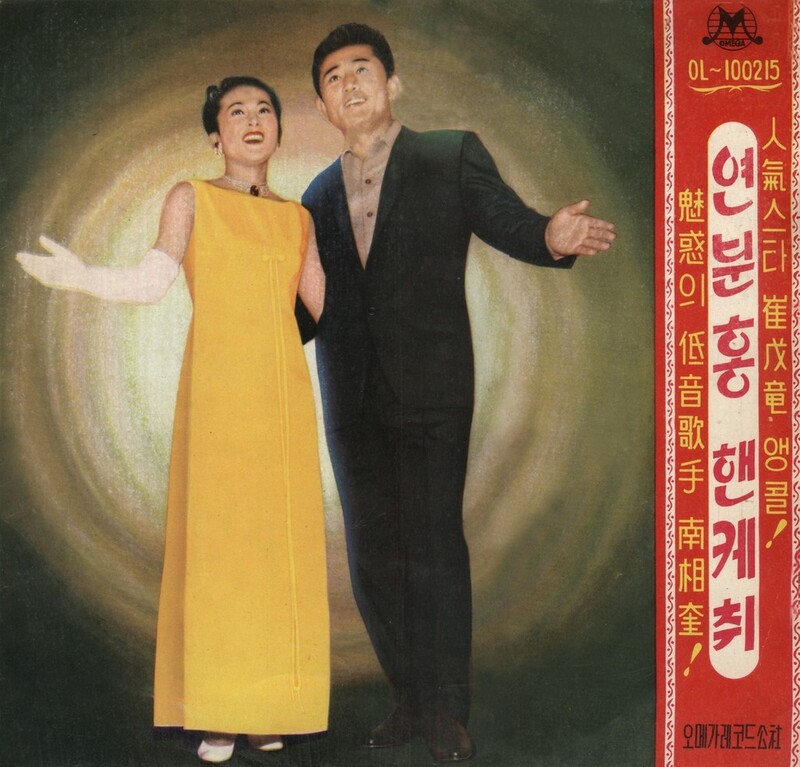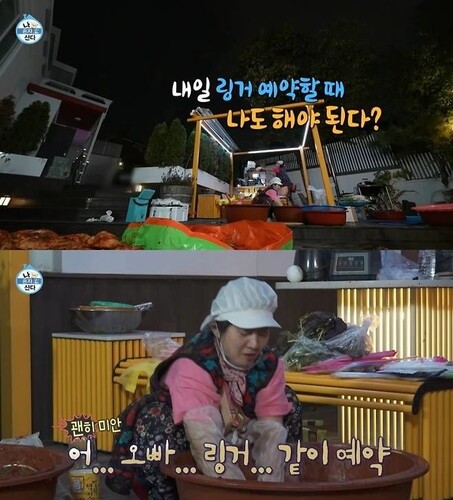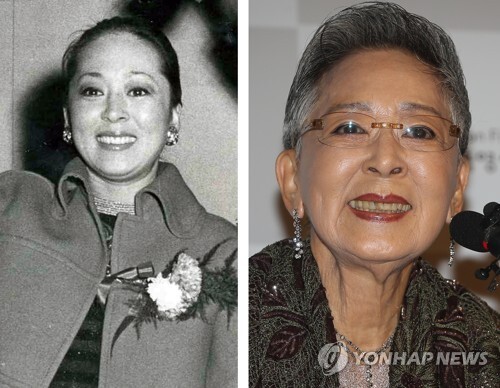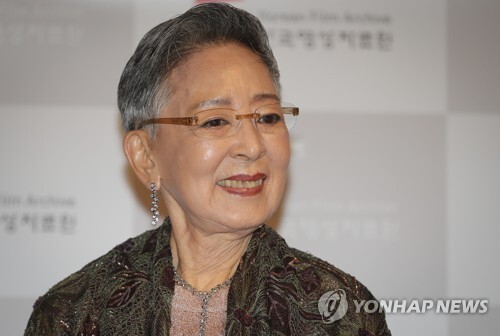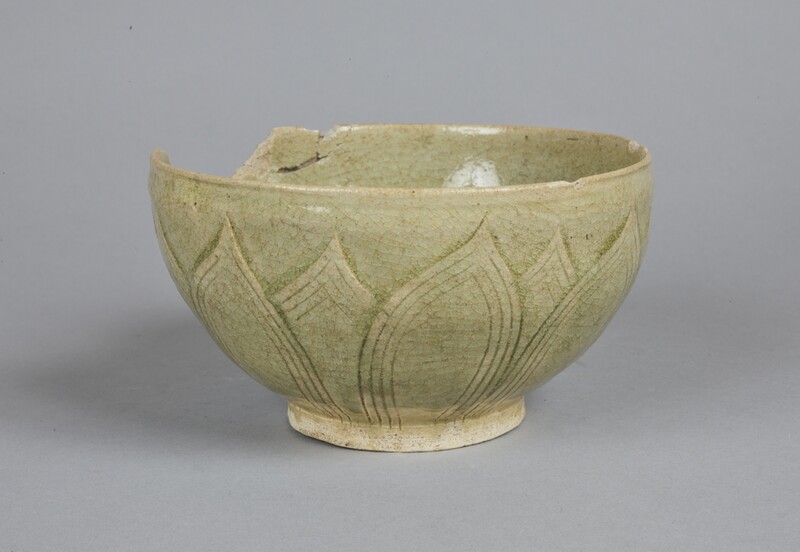 |
| ▲ This photo, provided by the Cultural Heritage Administration, shows the Chinese celadon found in the Haman Marisan Ruins. (PHOTO NOT FOR SALE) (Yonhap) |
SEOUL, Nov. 13 (Yonhap) -- A Chinese celadon, believed to have been made in the 5th century, has been unearthed from a tomb left by Ara Gaya, a kingdom that existed in the south-central part of the Korean Peninsula between the 1-6 century AD.
This celadon bowl was found in the Haman Marisan Ruins, known to be a historic site with ancient tombs for the ruling class of Ara Gaya, in Haman-gun, South Gyeongsang Province, according to the Cultural Heritage Administration and Haman County on Saturday.
It is the first time for a Chinese celadon to be discovered in the Gaya Kingdom, which is evaluated as evidence to support the fact that the Ara Gaya Kingdom interacted with the contemporary Chinese Southern Dynasties, which refer to Liu Song (420–479), Southern Qi (479–502), Liang (502–557) and Chen (557–589).
The bowl, which is 16.3 cm in diameter and 8.9 cm in height, was excavated from an ancient tomb numbered No. 75 among the tombs at Marisan.
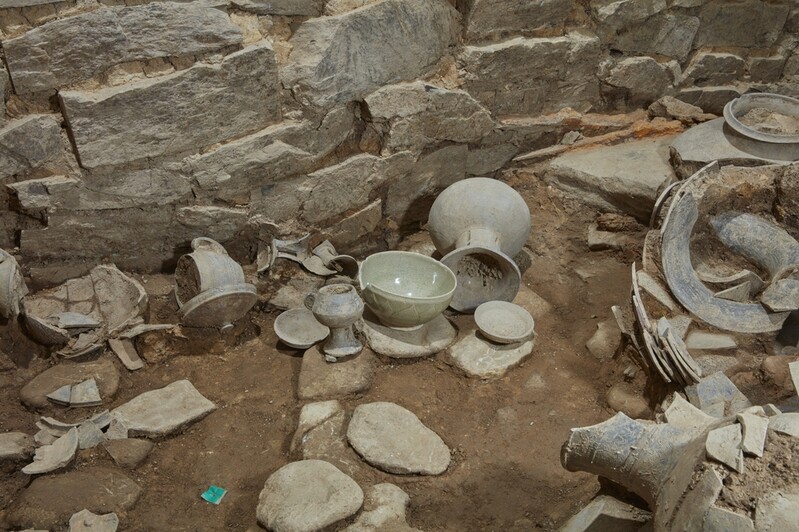 |
| ▲ This photo, provided by the Cultural Heritage Administration, shows the celadron bowl found in tomb No. 75. (PHOTO NOT FOR SALE) (Yonhap) |
The Chinese celadon, identified in the burial space of relics in the west stone chamber, where the body of the tomb's owner was placed, had eight lotus petals carved on both the inside and outside surface. The petals are characterized by a three-dimensional effect since it is shaped by concaving and embossing technology.
Archaeologists evaluated the celadon to be "a representative form of celadon bowl from the 5th century period," adding, "It is presumed to have been made in the Jiangxi Province, China."
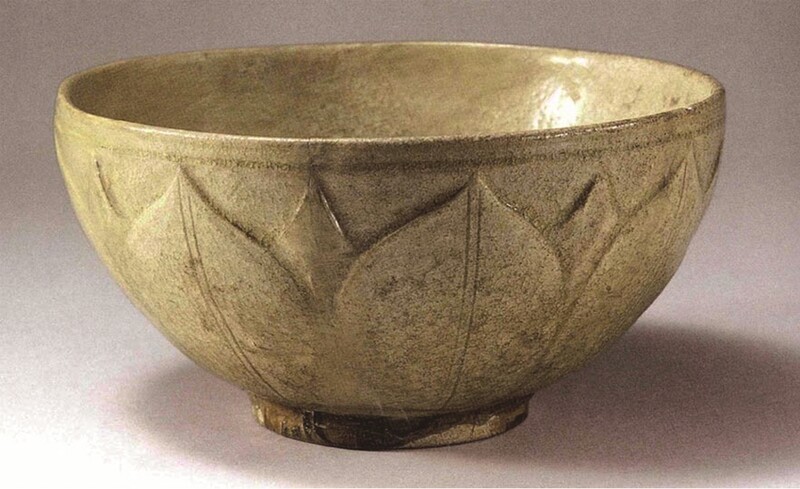 |
| ▲ This photo, provided by the Cultural Heritage Administration, shows a Chinese celadon found in 474 AD. (PHOTO NOT FOR SALE) (Yonhap) |
Considering that these types of celadon were excavated from tombs built in 402 and 474 AD, in China, the investigation team estimated that the recently discovered celadon was also produced around the 5th century.
This type of Chinese celadon have also been excavated from tombs in Yongwon-ri, Cheonan and Earthen Fortification in Seoul.
In "The Book of Qi," which summarizes the history of the Chinese dynasty Southern Qi, there is a record that King Haji of Gaya sent an envoy to the Southern Qi to receive the title of king.
The discovery of the Chinese celadron may support the possibility that the king who sent the envoy belonged to Ara Gaya.
The No. 75 tomb, where the celadon was excavated from, is 20.8 m in diameter and 3.5 m in height based on its recent condition.
In the middle of the excavation site, lies an elongated stone chamber, which is 8.24 m long, 1.55 m wide, and 1.91m high. The body of the tomb's owner was buried in the middle, and the burial space for those who were killed with the tomb's owner were placed on both sides.
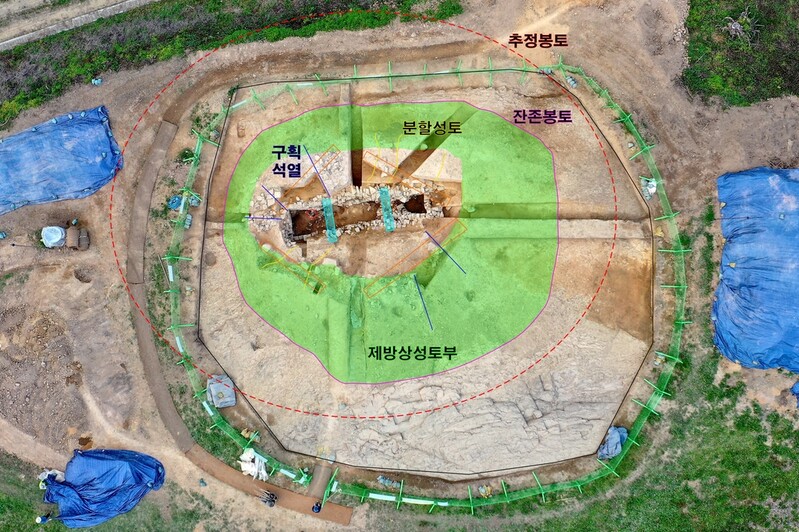 |
| ▲ This photo, provided by the Cultural Heritage Administration, shows tomb No. 75 in the Haman Marisan Ruins. (PHOTO NOT FOR SALE) (Yonhap) |
The stone chamber is 8.24 m long, 1.55 m wide, and 1.91 m high, and the ceiling was made of 11 stones, and its mound was topped with soil. Traces of trees installed to reinforce the structure of the chamber was also found.
In addition to the celadon, many weapons were found, including two large swords, iron arrowheads, iron axes, and a gilt-bronze quiver. Horse armors such as stirrups and saddles, as well as more than 50 pieces of earthenware were also found.
(END)
(C) Yonhap News Agency. All Rights Reserved










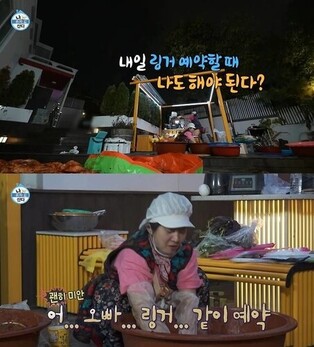
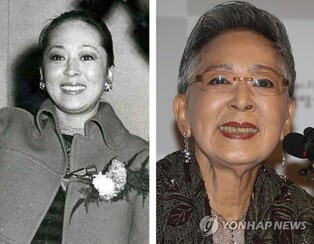

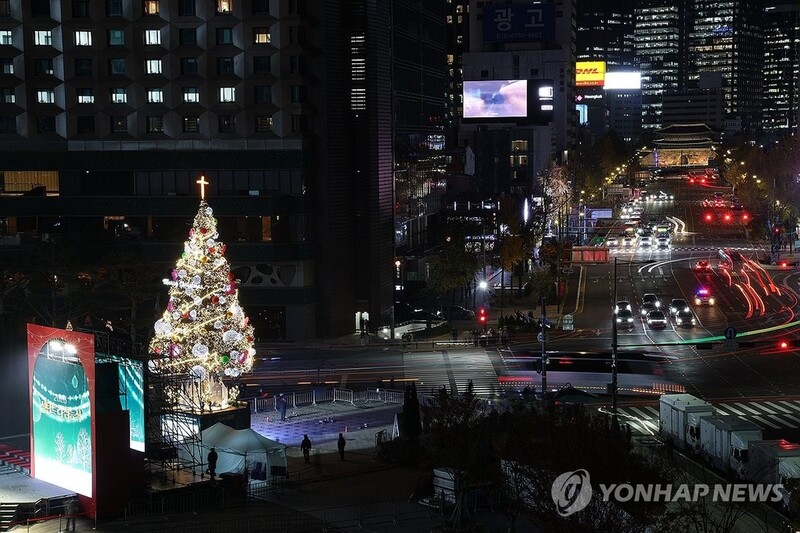

![[가요소식] 10대 싱어송라이터 민서, 데뷔 싱글 '미로'](https://korean-vibe.com/news/data/20251211/yna1065624915952705_742.jpg)
